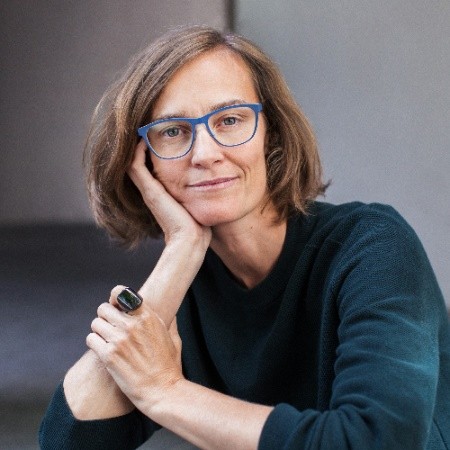Entrepreneur, author, and creator of the term "femtech," Ida Tin is the chairwoman and co-founder of Clue, the pioneering period-tracking app, with 11 million monthly active users.
In this Q&A, Ida shares her insights on the progress made in FemTech and the emerging trends poised to shape the future. She also shares candid advice for founders and investors, offering valuable lessons gleaned from her own journey.
What do you see as the most significant trends currently shaping the FemTech space?
One of the most significant trends in the FemTech space is the growing focus on menopause and chronic disease management, such as PCOS and endometriosis. The overarching trend, however, is the increasing awareness that women’s health is an area that needs greater attention. This includes recognizing that women’s health has historically been underfunded and under-researched. This heightened awareness is driving initiatives in both the private and public sectors. In a sense, the trend is that women’s health is finally being acknowledged as a priority. Beyond that, hormonal health is emerging as a potential area of growth. While it may not yet be a dominant trend, it could play a significant role in shaping FemTech in the future, especially in conjunction with technologies that leverage biomarkers to provide insights into the body at a molecular level.
With all the focus or hype in recent years, where do you think we've achieved the most meaningful progress so far, and what areas do you anticipate will see the greatest impact in the next five years?
I believe some of the most meaningful progress in recent years has been in the cultural realm surrounding FemTech and women’s health. Today, we can openly discuss topics such as the experience of menopause, fertility challenges, and the concept of medical gaslighting. There is now more space for women to share their experiences, often centered around inadequate care. This openness has shed light on how women frequently feel unheard and dismissed within the healthcare system. This is particularly significant because, once we start listening to women’s experiences, we uncover gaps in healthcare systems where women are not receiving adequate care. This cultural shift has also spurred political attention, with initiatives such as those by the NHS and the Biden administration focusing on women’s health and research funding.
Additionally, younger women are likely more informed about their reproductive health than in the past. However, I say that with the caveat that many are still terribly under informed about their own bodies due to failings in the education system.
On the investment side, while there has been an increase in funding for women’s health, it is still far from enough. Over the next five years, we can expect some of the innovative products emerging from this explosion of creativity to reach mass consumer markets. However, the scale of this impact may be limited, as many of these products struggle to secure adequate funding to achieve widespread adoption. That said, once these technologies reach consumers, they will have a significant impact on people’s lives.
Based on your expertise, if you could offer one key piece of advice to investors looking to support the FemTech industry, what would it be, and why?
My advice to investors, particularly male investors, is to begin with a humbling exercise: acknowledge that there are life experiences you have not had, and there are many things you don’t know—and, crucially, things you don’t even realize you don’t know. It is essential to listen very carefully to the founders who present ideas for products and services. Trust that they see market opportunities you might not immediately recognize. Additionally, be open to redefining what leadership and confidence look like, as these qualities may manifest differently in women leaders.
This mindset is important because women bring immense untapped potential as innovators and leaders. They often build diverse teams and create companies that are highly user-centric. Such an approach tends to result in better products—especially critical in the field of women’s health, where it is easy to miss the mark emotionally, culturally, or by reinforcing gender norms. By supporting and trusting these founders, you are more likely to back businesses that will drive meaningful impact and deliver products truly tailored to their markets.
What lessons have you learned from building Clue that you believe are crucial for other entrepreneurs entering the FemTech space?
One of the key lessons I’ve learned from building Clue is that raising capital can be incredibly challenging, and it can cause you to question yourself, your business ideas, and even your presence in the room. You might second-guess everything—your choice of clothing, your pitching skills, and whether you’re good enough. Knowing what I know now, I would tell female founders that when things get tough, even when they have strong numbers, great product ideas, amazing teams, and are generating revenue but still struggle to secure funding, it’s important to remember: it’s not you. You are not the problem; the system is the problem.
The fundraising system is unfair, gender-biased, and frustratingly flawed. While we can’t change the system overnight, it’s crucial to remain pragmatic and find ways to work within it while continuing to advocate for change. Be vocal about the systemic issues you encounter, and don’t hesitate to articulate the changes you want to see. Think about what an ideal VC fund would look like—how it would operate and what values it would embody. Most importantly, be brave and persistent in navigating these challenges and pushing for a better, more equitable system.
Interested in learning more about women’s health? Explore the newly launched Women’s Health Community on the HLTH Community platform!
